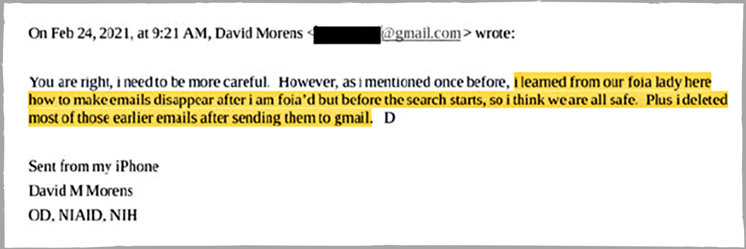In Florida, legislators have now passed 1,100 exemptions to the state’s Sunshine Law—once one of the broadest and strongest such laws in the country—according to the Miami Herald, and that number is only growing.
As a result, certain types of information never see the light of day. For example, the governor’s travel records remain hidden, as do autopsy reports of NASCAR driver Dale Earnhardt’s 2001 death.
“This is death by a thousand paper cuts, death to the public records law.”
Sunshine laws like Florida’s, as well as the Freedom of Information Act (FOIA) itself, are under constant assault for one simple reason: Politicians and bureaucrats, as a rule, don’t want private citizens to have access to their meetings, documents and activities. At best, they see that access as bothersome. At worst, they despise it for more sinister reasons.
Investigation records into amusement park rides in Florida are now exempt. Why? Who knows? Wouldn’t you want to know if your kids were riding on the rollercoasters of an amusement park that has a history of safety violations or accidents?
Barbara Petersen, executive director of the Florida Center for Government Accountability, weighed in on the exemptions: “That these things are passing with so little discussion or debate—it’s heart-wrenching, because these are not just exemptions to the public records law, but exceptions to our Constitution, because we have a constitutional right to the records and meetings of our government.
“This is death by a thousand paper cuts, death to the public records law,” she said. “Given the large number of exemptions … this is more like a shredder.”
She noted that at least 20 new exemptions made their way through Florida legislature during the 2023 legislative session.
Her point is well taken: When lawmakers conceal public records, it is that much easier for public officials to do business behind closed doors. If sunshine laws “get in the way,” there are ways around them: Enact exemption after exemption.
But there are other means, too: Slow responses to a snail’s crawl or simply refuse to comply at all.
A group of reporters investigating insurance companies claiming near-insolvency while stashing billions of profits filed a request for information.
They finally got it from the Office of Insurance Regulation. It only took two years!
Safe from what? From providing information requesters have a legal right to?
The Sunshine Law “does not compel public record custodians to respond to FOIA requests within a specific time frame,” according to a private website that lists Florida state records.
Another stunt designed to keep citizens from obtaining documents and information to which they are legally entitled involves overpricing the cost of research and reproduction beyond the ability of the requester to pay.
One journalism student working on an article on dams was told the information she wanted—information that was likely just a quick digital search away—would cost $1,665!
There is a lot of propagandizing going on to cover it all up, of course, with bureaucrats talking about what a wonderful job they are doing. The National Archives and Records Administration (NARA) just held a forum entitled “Transparency and Access to NARA Records” in recognition of Sunshine Week.
Sure. That will help.
Meanwhile, federal bureaucrats are coming up with more and more ways to dodge and duck requests under the FOIA.
Dr. David Morens, then senior advisor to Dr. Anthony Fauci, actually emailed: “I learned from our FOIA lady here how to make emails disappear after I am FOIA’d, but before the search starts, so I think we are all safe.”
Safe? Safe from what? From providing information requesters have a legal right to?

Then he wrote that the head of National Institute of Allergy and Infectious Diseases’ FOIA office “also hates FOIAs.”
Along with charging high rates for compliance and slow-rolling requesters to death, the feds have even another trick up their sleeve: the Glomar response—named after the Howard Hughes deepwater salvage vehicle—by which agencies insist they can “neither confirm nor deny” that the information exists, and thus refuse to answer a request.
The Church of Scientology has long been a fierce advocate of freedom of information, motivated by a principle Scientology Founder L. Ron Hubbard himself best expressed: “Democracy depends exclusively on the informedness of the individual citizen.”
“It is up to the citizenry,” said David Cuillier, director of the Brechner Freedom of Information Project at the University of Florida. “If the people don’t cherish and demand transparent government, then the politicians certainly won’t.”






















